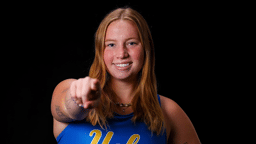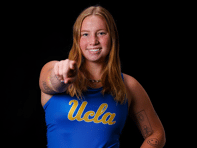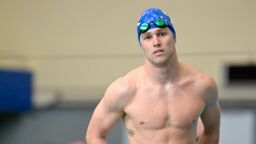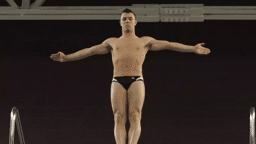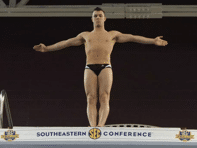When I was 15, I sobbed as I uttered the words “I’m gay” out loud for the first time.
As I laid in the bed in my grandparent’s guestroom, I could not stop the tears from flowing down my face as my body shook from the fear that I felt inside. My mother sat next to me and asked, “What’s wrong Sarah? Are you hurting yourself? You’re really scaring me.”
Although what I was about to tell my mother may not have been as scary to her as it was to me, the shame that I held about my own sexuality shook me to my core. When I replied with my secret, I continued to sob, realizing that by sharing those words, the world had shifted around me.
Although my parents were always very accepting of the LGBTQ+ community when I was growing up in Baltimore, the idea that I myself was one of “them” was terrifying to me, as I was deeply afraid that I would be ostracized by those whom I loved. Despite the fact that after I came out, my mother hugged me and told me she loved me, my fear only grew, as I now had to face the long, difficult process of coming out, which no one that I knew well had experienced.
I have known that I am gay since I was 6. As I transitioned into adolescence, these feelings only grew, especially as access to the exclusive scene that other lacrosse players at my all-girls private school inhabited depended on one’s ability to obtain a male date to a dance or a boyfriend who maintained the same social status.
Even after I came out to my family, I continued to deny this part of my identity, instead telling myself that this part of my world would stay hidden until I entered college, where I would feel less different than everyone else.
Even when a new lacrosse coach was hired at my high school who identified as a lesbian, my fear of being outed persisted. Although my coach seemed so comfortable with her identity, I never knew if I was going to be able to feel the same way.
Seeing my coach feel comfortable with introducing her female fiancé to our team and walk around my high school’s campus hand-in-hand showed me how my life could not only be normal but also full of love, especially as I had not seen this from someone within the lacrosse community before.
Although my coach was mostly accepted by our team, slight comments would be made every now and then, as people would remark how our coach “didn’t seem gay.” Furthermore, my paranoia of making my teammates uncomfortable due to my sexuality, particularly in a locker room setting, only grew. Partially as a result of my internal struggle, I further threw myself into lacrosse, distracting myself with extra workouts and training sessions in order to ignore the deep fear and shame that only continued to grow inside of me.
After I committed to play Division III lacrosse at Haverford College, a small liberal arts institution located outside of Philadelphia, I became less fixated on gaining acceptance to the best lacrosse program and school I could, and I was forced to confront my identity.
I became more frustrated with my struggle to define my sexuality publicly and started to question why I kept this part of my life hidden from most of the people that I loved. As I began to explore this part of my identity further, I came out to a select group of close friends, from whom I received a completely positive reaction.
However, I made sure to exclude any of the friends that I played lacrosse with from this group, as my fear of my teammates reacting poorly remained. This fear and paranoia only increased after a teammate referred to a boy at a party as a “fag,” which completely shocked me and only increased my feelings of isolation.
In the spring of my senior year of high school in 2018, I developed strong feelings for another female lacrosse player who had already come out to her community and was publicly proud of who she was, which inspired and terrified me at the same time.
When this relationship progressed, I finally decided to come out to the world, posting a subtle photograph on Instagram, hoping that some people would figure out my identity without me having to tell them out loud. This was the first time in my life where I not only felt loved for who I was but also proud of my identity. This deep sense of shame that I felt for years decreased as I became more comfortable sharing my relationship with others.
Despite the fact that after this relationship ended, I told myself that my ex-girlfriend had forced me out of the closet, I ultimately knew that I made this decision myself as I was inspired by her story. Her pride and comfort with herself, particularly as a women’s lacrosse player, ultimately empowered me to take control of my reality and love my identity, which has only made me a more confident and stronger person.

Coming to Haverford in the fall of 2018 was like finally getting the breath of fresh air that I desperately needed. Not only have I felt love and acceptance from my teammates at Haverford, but I have also experienced the normalization of my experience, as I am treated the same by all of my teammates, even in conversations about relationships, sex and other more personal topics.
When I met other female athletes who were experiencing the same struggle to come out that I had, I realized the importance of normalizing the LGBTQ+ identity and same-sex relationships in order to reduce the stress and shame associated with coming out. The support I’ve received from my teammates and other Haverford athletes is the reason why I feel comfortable sharing my story and calling for the normalization of my experience.
I’m not, however, saying that coming out to new people is easy, as it still can be awkward and uncomfortable, despite the accepting nature of my school.
I am still sensitive to comments such as mentions of inviting only teammates’ “boyfriends” to social events, or questions regarding who members of our team are dating on the men’s teams, and not the women’s. Although I know others do not mean any harm through these comments, they can unintentionally increase the isolation of those who identity as LGBTQ+ especially on athletic teams, where this topic is seldom discussed.
Furthermore, while I love reading articles about other LGBTQ+ athletes, such as those in US Lacrosse, I sometimes wish we in the lacrosse community were past the point when coming out to one’s team was something to write a news article about. While this may sound odd, coming out, particularly in a public setting, can often feel isolating and awkward, and I wish other athletes would not have to experience this process as their identities should already be considered part of the norm.
Here is my call to action for the lacrosse community: coaches, players, fans, please help to normalize the LGBTQ+ experience and relationships for your teams and peers. By normalization, I mean beginning to use gender-neutral pronouns when referring to romantic relationships, routinely valuing everyone for the diversity that they bring to the world and normalizing for young children the possibility of feeling romantic emotions for a member of the same gender.
Let’s start talking about identifying as LGBTQ+ as a routine part of the lacrosse world, so we reduce the isolation for future generations of athletes and ensure that they do not have to question the validity of their place on their team and in the world. Overall, I look forward to a world when young girls and female athletes no longer have to utter the phrase “I’m gay” and experience the fear of being rejected by their community.
Sarah Cahn, 20, is pursuing a B.A. in Political Science at Haverford College and will graduate in 2022. Among other activities, she is a goalkeeper on the Varsity Women’s Lacrosse team. She also graduated from the Bryn Mawr School in Baltimore in 2018. Sarah hopes to pursue opportunities in foreign policy and government following her graduation. She can be reached by email ([email protected]), Instagram (@sarcahn), or LinkedIn.
Story editor: Jim Buzinski
If you are an out LGBTQ person in sports and want to tell your story, email Jim ([email protected])
Check out our archive of coming out stories.
If you’re an LGBTQ person in sports looking to connect with others in the community, head over to GO! Space to meet and interact with other LGBTQ athletes, or to Equality Coaching Alliance to find other coaches, administrators and other non-athletes in sports.
A version of this article first appeared on Inside Lacrosse.







